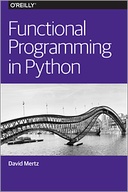Explore

Python is not a functional programming language, but it is a multi-paradigm language that makes functional programming easy to perform, and easy to mix with other programming styles. In this paper, David Mertz, a director of Python Software Foundation, examines the functional aspects of the language and points out which options work well and which ones you should generally decline.
Mertz describes ways to avoid Python’s imperative-style flow control, the nuances of callable functions, how to work lazily with iterators, and the use of higher-order functions. He also lists several third-party Python libraries useful for functional programming.
Topics include:
Mertz describes ways to avoid Python’s imperative-style flow control, the nuances of callable functions, how to work lazily with iterators, and the use of higher-order functions. He also lists several third-party Python libraries useful for functional programming.
Topics include:
- Using encapsulation and other means to describe "what" a data collection consists of, rather than "how" to construct a data collection
- Creating callables with named functions, lambdas, closures, methods of classes, and multiple dispatch
- Using Python’s iterator protocol to accomplish the same effect as a lazy data structure
- Creating higher-order functions that take functions as arguments and/or produce a function as a result
Why read this book? Have your say.
You must be logged in to comment.
Editions

